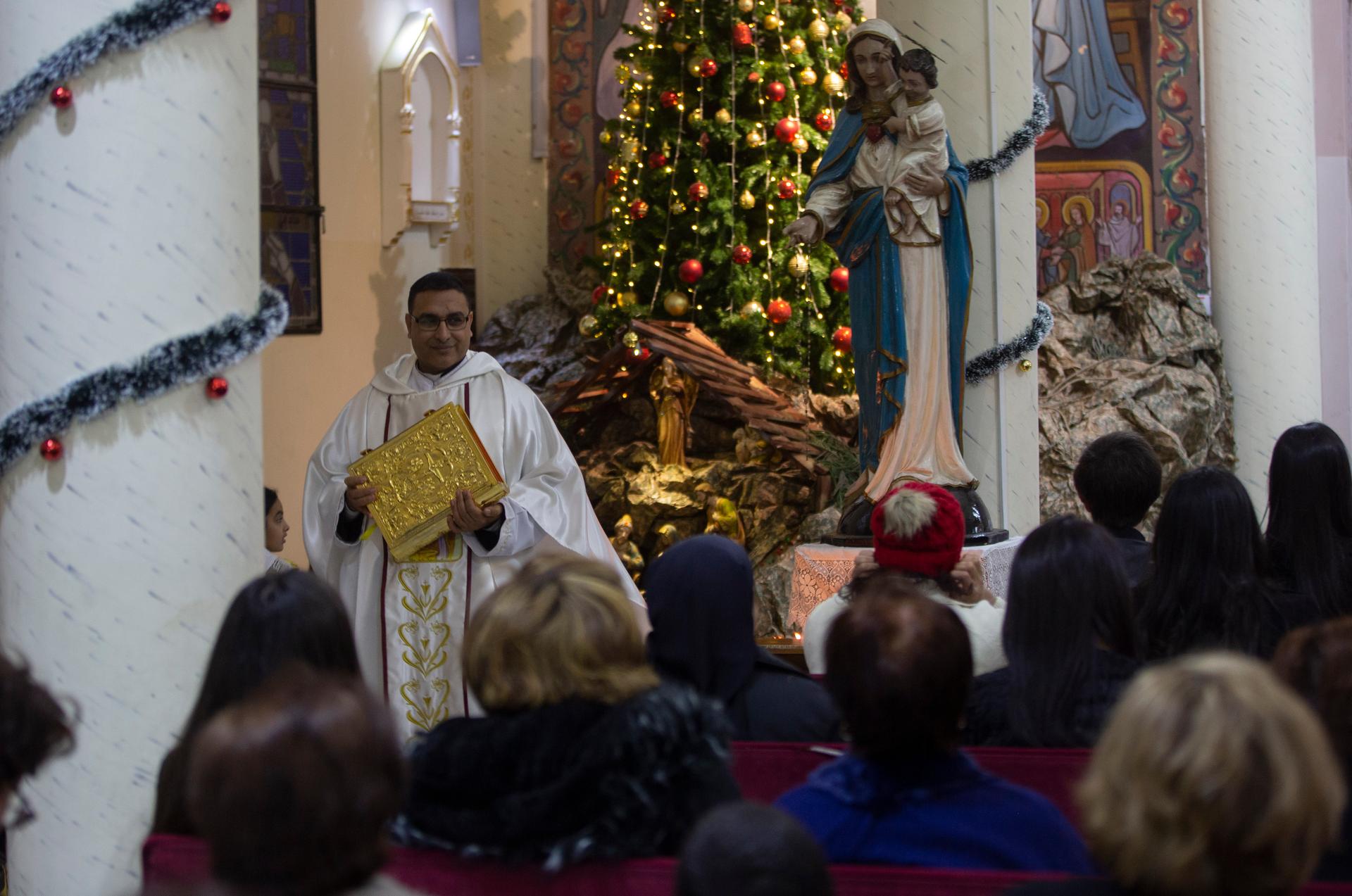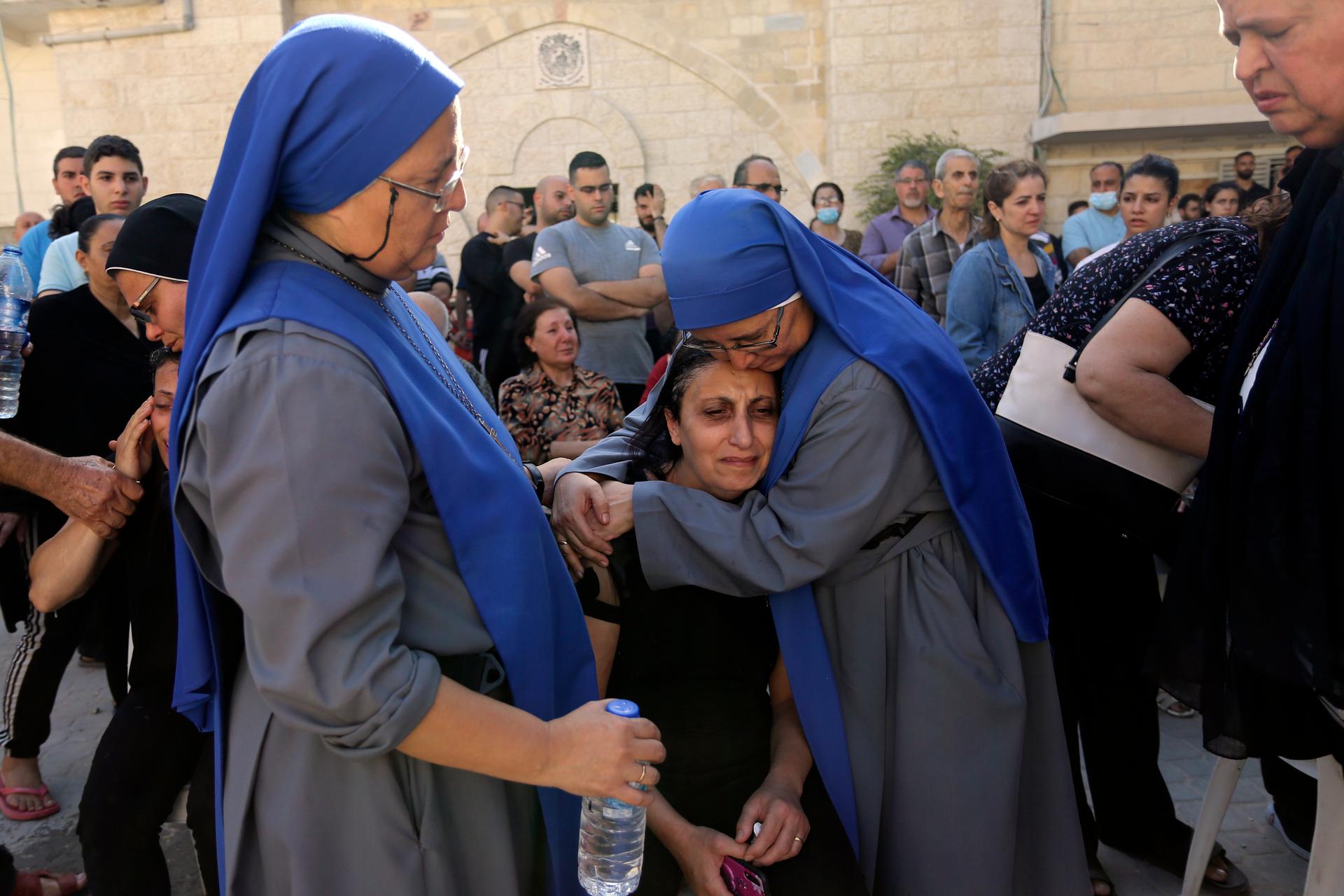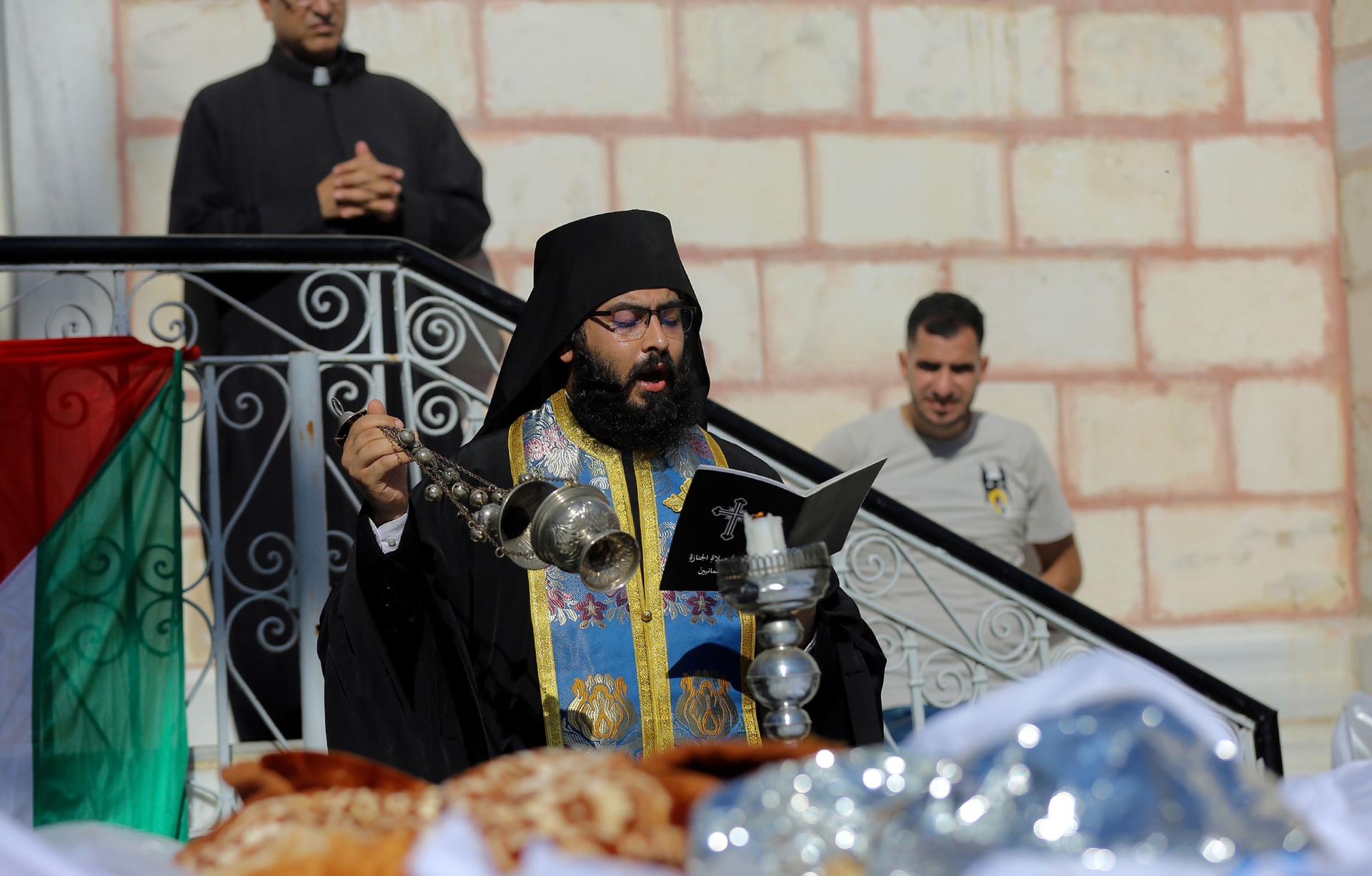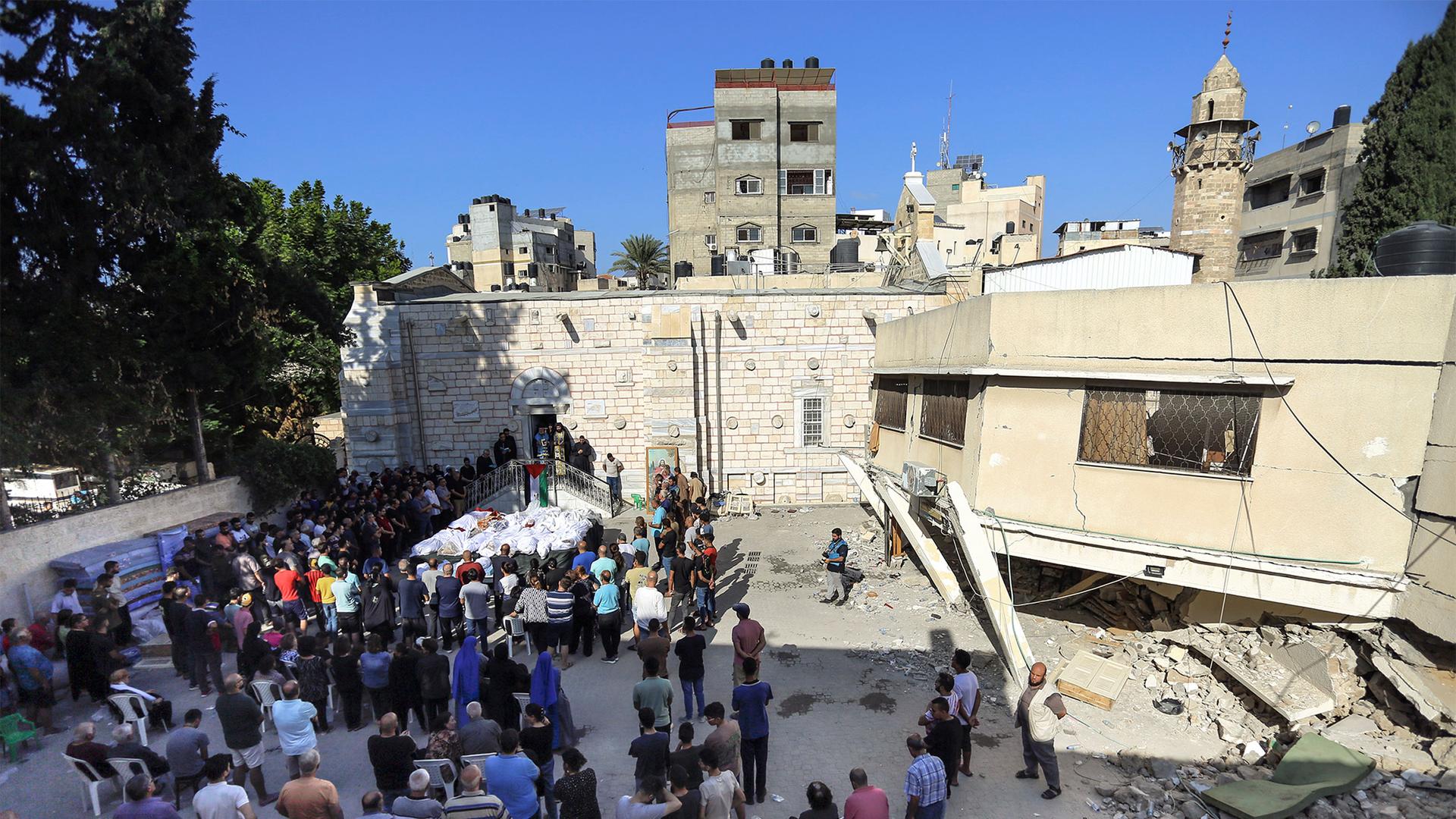Every year around Christmastime, Khalil Sayegh and his family in Gaza used to decorate a tree. On Christmas Eve, they would all gather at their house and have a big family dinner.
“We would listen to music, we’d drink wine, it’d be really fun,” Sayegh said. “And on the 25th, which is the day of Christmas, we [would] go visit family.”

In recent years, life has become increasingly difficult for the small Christian community in Gaza.
Before the current war in Gaza, there were about 1,000 Christians — out of a total of about 2 million people — living in the enclave, according to the US State Department’s international religious freedom report from last year. But that number has dwindled over the years as Christians, like Sayegh, have left the Gaza Strip in search of a better life.
Now, some members of the community worry that Israel’s war could spell the end of the community there altogether.
Growing up as a Christian in Gaza was challenging, Sayegh said. On the one hand he “suffered from Israel’s siege, occupation and inhumane policies” (Gaza has been under a military blockade by Israel and Egypt since Hamas’ takeover of the Strip in 2007). And on the other hand, he had to live according to the rules imposed by Hamas.
For example, he added, sometimes he would get questioned by their members if he went out with a female friend about whether they were married — the only way that would be permissible under Hamas’ strict conservative rules.
“I did have to deal with situations where Hamas’ members would want to intervene in your personal life.”
Sayegh’s grandparents fled the Palestinian village of al-Majdal, today’s Ashkelon, during the 1948 Israeli-Arab war. His grandfather was a jeweler, and once he resettled in Gaza, he opened up a store, which he then passed down to his two sons.
The difficult living conditions prompted Sayegh to leave Gaza for the West Bank city of Ramallah before emigrating to the United States three years ago.
But nothing prepared Sayegh for what he’s been witnessing in the past two months.
Early on in the war, his family members were forced to leave their home, which was destroyed in the bombardment. They took shelter in the Holy Family Catholic Church, one of Gaza’s two churches.
“The Christians thought that perhaps the church [could] provide protection…”
“The Christians thought that perhaps the church [could] provide protection, that perhaps the sanctuary of the church, the holiness of the church, the special status that it has will protect us,” he explained.

Their calculation turned out to be wrong.
Last week, The Latin patriarch of Jerusalem, Pierbattista Pizzaballa, said that Israeli snipers shot and killed a mother and daughter at the Holy Family Parish.
The Israeli forces said they were responding to rockets being fired by Hamas.
When Khalil Sayegh heard this news, he became even more anxious.
Reaching Gaza is almost impossible, he said, so he kept in touch with his cousin in the West Bank.
On Dec. 21, she called him and asked if he had heard from his parents. Sayegh said he had not, but thought they were doing OK.
In fact, they weren’t, his cousin said. She had heard that his father had passed away.
“It took me a few hours to confirm the news. And also to know what the circumstances were.”
Sayegh found out that his father had some sort of illness for the past few days. He is not sure what exactly. But there was no way to get him to a hospital. A doctor who’s sheltering at the church told him he thinks he died of a heart attack.
“He was truly a person of peace,” Sayegh said of his father. “Always talked about peace, always talked about the need to reach a peaceful solution.”
The Rev. Mitri Raheb, a Palestinian Christian and the founder of Dar al-Kalima University in Bethlehem, said Israel is making Gaza unlivable for everyone. But he particularly worries about the survival of the tiny Christian community in the enclave.
“My fear is that we are experiencing the last chapter in the history of that community,” he said.

So far, there are reports of at least 21 Christians killed in Gaza. That is 2% of the total population.
Raheb described the situation as an “SOS moment.”
During his annual Christmas address, Pope Francis said that the war is “destroying the lives of people in Israel and Palestine.” He pleaded for an end to the military operations and the release of the Israeli hostages held by Hamas.
Khalil Sayegh, who lost his father at the church, said he continues to worry about the safety and well-being of the rest of his family in Gaza.
But as he mourns, there is one thing that gives him some comfort.
“Thankfully, we were able to bury my father,” he said, adding that so many people in Gaza today don’t even get the luxury of a dignified burial.
Related: Christmas is canceled in Bethlehem
